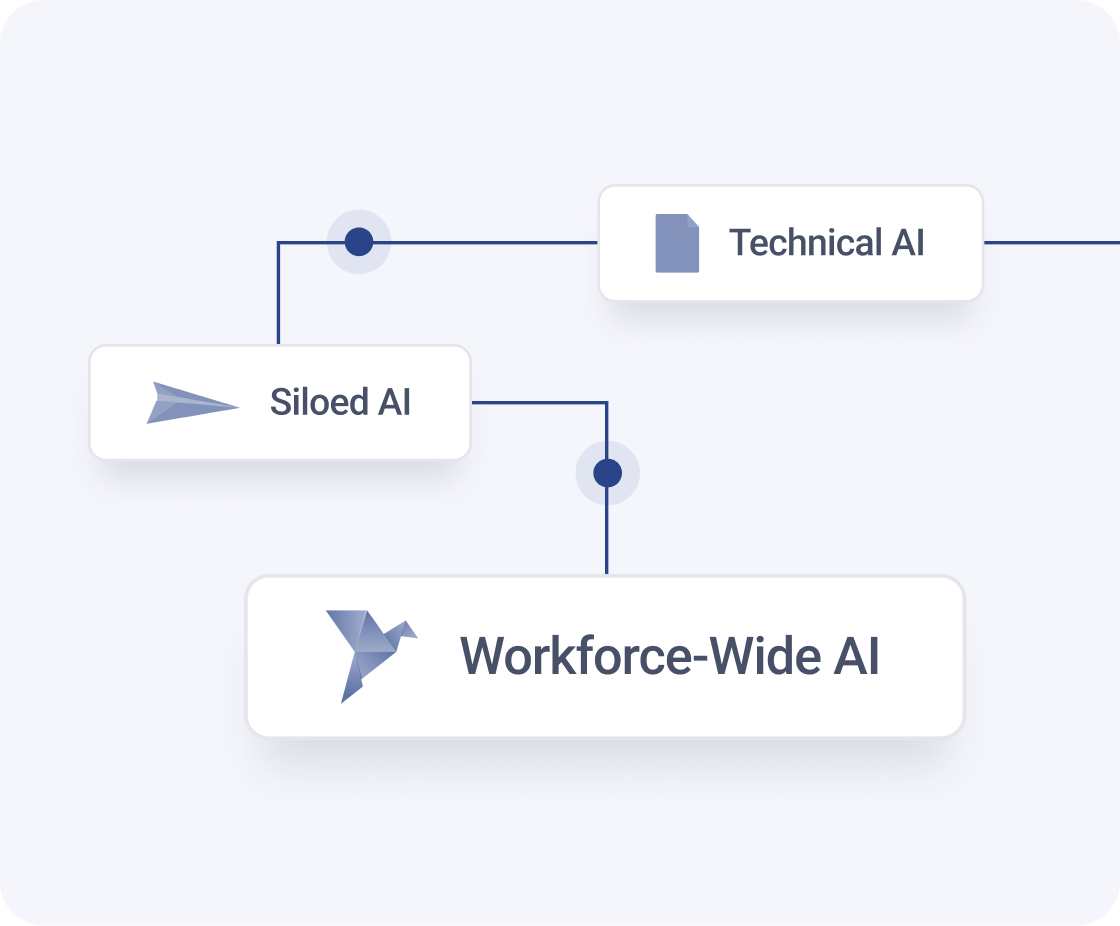
.png)
Infobip is a global cloud communications platform that’s on a mission to revolutionize communications between people and businesses. Beginning in a small Croatian town in 2006, Infobip has quickly become an industry leader, bootstrapping the company to €1.55 billion in revenue by 2022.
Infobip helps major global companies like Uber, Hubspot, Meta, and Microsoft, send and receive critical communications around the world; customer delight is core to their business, and their support needs to be fast, efficient, and available 24/7.
The Problem
Infobip’s support team manages millions of inbound requests across multiple products and timezones. Their goal was twofold:
- Serve more customers faster with the same amount of resources–without compromising on customer success.
- Pull trends and insights from their contact center data to inform support, sales, marketing, and product strategy–for better CX across the board.
Managing costs while continuously improving CX is a difficult balancing act.
Serve more customers faster
As a leading provider of self-service chatbots, Infobip knew they could automate a portion of their inbound support requests through Answers. Answers is an no-code, AI-enabled chatbot platform that can support customers across multiple channels. But with a high velocity of inbound requests, Infobip needed to know which automations would have the biggest impact in freeing up their agents, and how the automated conversations should be designed to provide low-friction support.
Pull trends from unstructured data
Infobip’s analysts were spending hours on tedious support call analyses in an effort to understand and improve their customer’s support experience. Support data was siloed from other customer-facing departments, limiting their ability to scale customer knowledge across sales, marketing, product, and support.
The Solution
Finding Cost Saving Opportunities in Customer Support Data
Infobip used HumanFirst to analyze thousands of inbound customer support tickets stored in Conversations, their cloud contact center solution. The customer support team uploaded their conversation data into HumanFirst and engineered a prompt to extract the main contact reasons across each exchange. HumanFirst makes it easy to validate the LLM-generated contact reasons against the source conversation, ensuring the prompt performs reliably in conversational contexts.
Working with verified call summaries, Infobip used HumanFirst’s interactive search and clustering features to quickly group and label the conversations into key issue categories. In the first week, they identified two main inquiry categories that were taking 30% of their agents' time.
Building a Self-Service Blueprint
Infobip had clear next steps. They built a self-service chatbot through Answers to address both of the repetitive request categories comprising 30% of their ticket volume. The next step was to equip the chatbots with the right information.
Within HumanFirst, Infobip engineered a prompt to identify high-CSAT conversations. They then mined hundreds of high-satisfaction conversations to extract the agent protocol that led to the successful resolution.
Generating Knowledge Content for Self-Service Automations
With the successful protocols serving as real-world blueprints, Infobip used HumanFirst to generate hundreds of knowledge articles; targeted, FAQ-like documents to ground the AI-assisted chatbot. The support team reviewed the LLM-generated knowledge articles and exported them to Answers to give the chatbots the most relevant information.
Collaborating Across Teams
Infobip is in the business of innovation. After the initial pilot, the team quickly realized that the insights found in customer support conversations were critical for their marketing, sales, and product strategy.
In one collaborative platform, support and sales teams can analyze buy signals to optimize their upsell and cross-sell strategies. Marketing teams can use positive and negative customer feedback to adjust their messaging, build new campaigns, and reach out personally to customers to remedy sub-par experiences. Product teams have a new way to prioritize their initiatives based on customer feedback, improving their ability to deliver customer value quickly.
Result
By building a self-service blueprint focused on automating high-frequency support requests with high-satisfaction resolution strategies, Infobip is able to serve more customers faster with the same amount of resources. A 15% reduction in the volume of questions reaching human agents is estimated once the AI-assisted chatbot is deployed.
In addition, Infobip is projecting an increase in NPS scores for both customers and agents.
To help more teams adopt this workflow, HumanFirst is directly integrated with Infobip's Conversations. Find HumanFirst on the Infobip Exchage.

.png)
.svg)
.png)
%20(31).png)
.png)

.png)
.png)
.png)
.png)
.png)
.png)